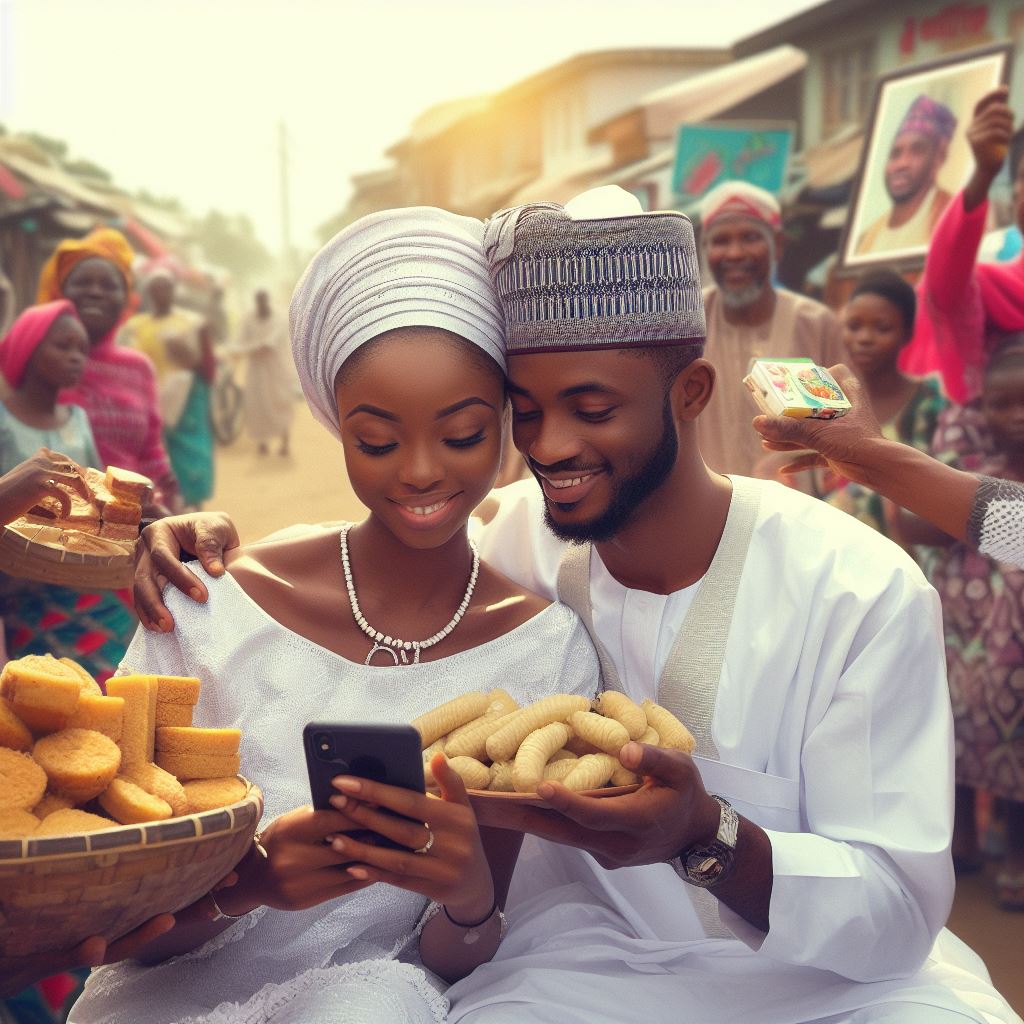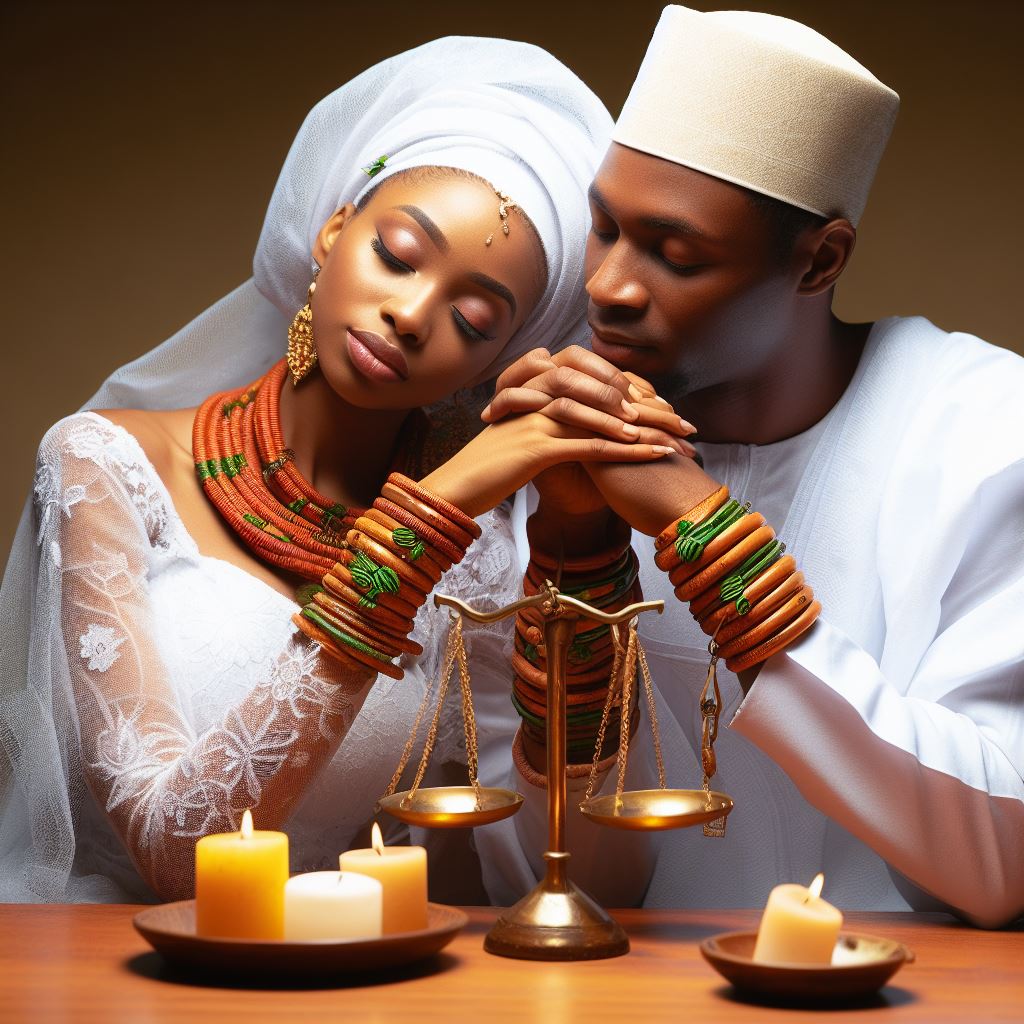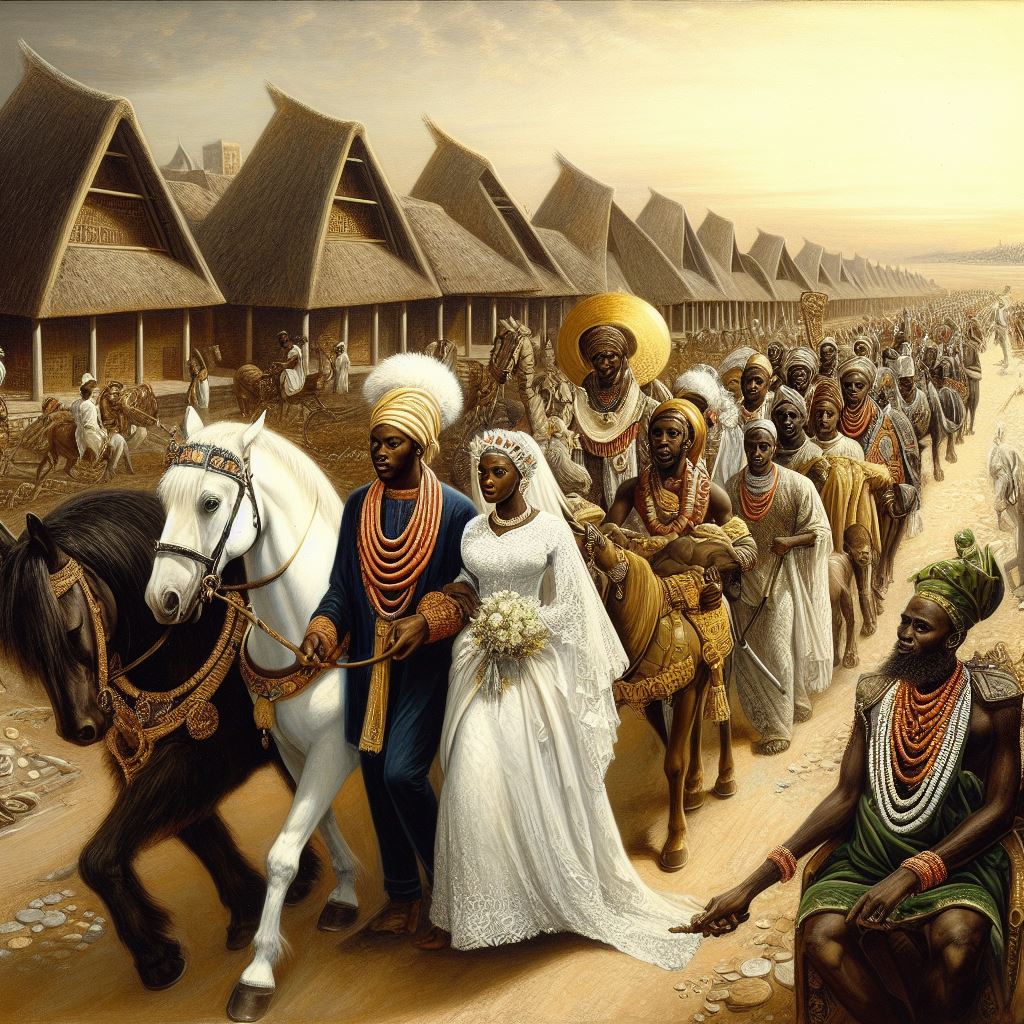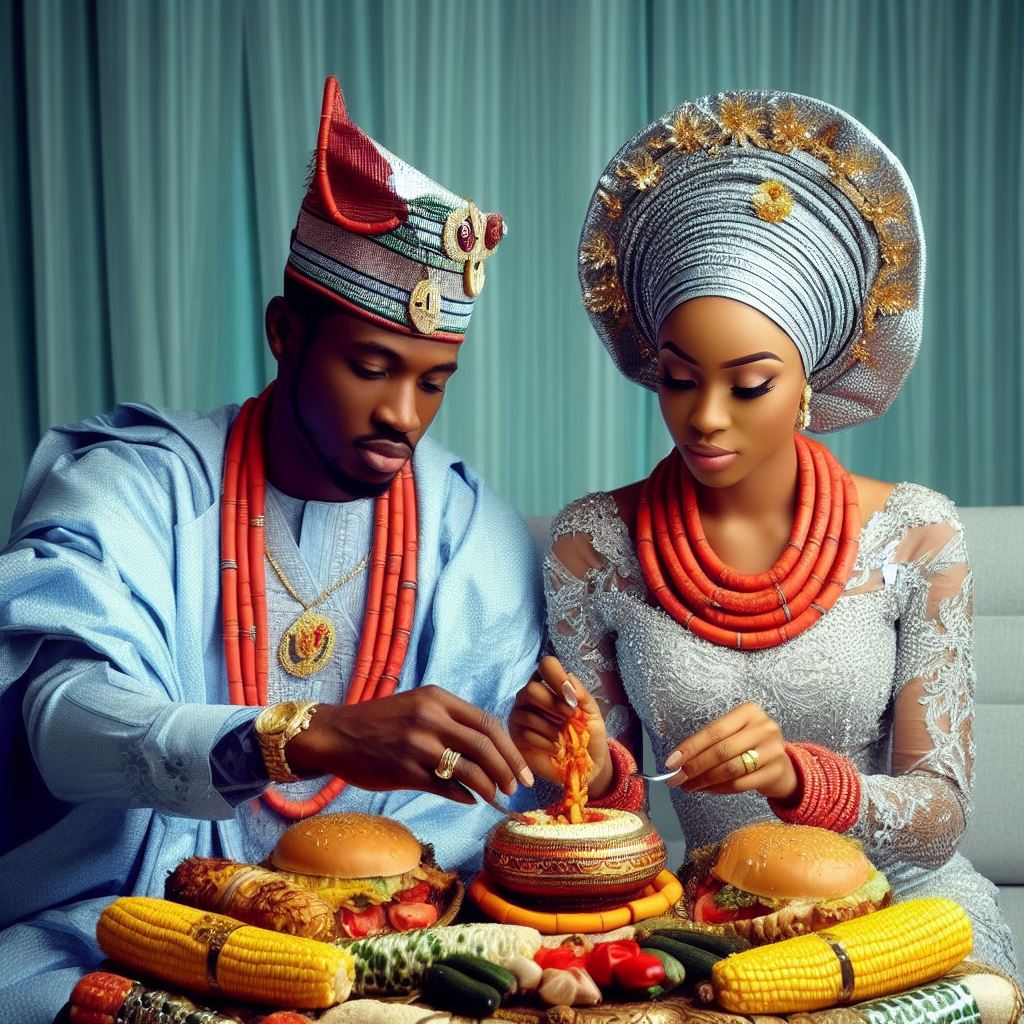Introduction
We will delve into how traditional Nigerian ceremonies honour marriage, showcasing rich cultural traditions and customs.
A. Traditional Nigerian ceremonies and their significance
Traditional Nigerian ceremonies are rich in cultural symbolism and represent the celebration of marriage.
These ceremonies are not just mere events but rather a significant part of Nigerian culture.
Marriage holds a special place in Nigerian society and is considered a sacred bond that establishes family unity and continuity.
B. The importance of the institution of marriage in Nigerian culture
In Nigerian culture, marriage is not just a union between two individuals; it symbolizes the coming together of families and communities.
The institution of marriage is highly regarded as it fosters social stability, ensures the preservation of cultural traditions, and strengthens the fabric of society.
C. Thesis statement
This blog post will delve into the various traditional Nigerian ceremonies that honor the institution of marriage.
From the Igbo’s “Igba Nkwu” to the Yoruba’s “Traditional Engagement,” each ceremony holds its unique rituals, customs, and symbolisms that signify the sacredness and importance of marriage.
We will explore the significance of traditional attires, traditional marriage rites, and the role of communal participation in these ceremonies.
Additionally, we will dive into the traditional practices such as the exchange of gifts, cultural dances, and the blessing of the union by elders.
Join us as we explore the rich tapestry of Nigerian traditions and ceremonies that honor and celebrate the institution of marriage.
Overview of Traditional Nigerian Wedding Ceremonies
A. Different Types of Traditional Ceremonies
- Igbo Traditional Wedding: Celebrated by the Igbo ethnic group, it involves various pre-wedding, wedding, and post-wedding ceremonies.
- Yoruba Traditional Wedding: Practiced by the Yoruba people, it includes engagement, introduction, and the main wedding ceremony called “Igba Nkwu” or “Nikkai.”
- Hausa Traditional Wedding: Common among the Hausa-Fulani ethnic group, it is a colorful affair filled with lively music, dances, and elaborate rituals.
- Ibibio Traditional Wedding: Unique to the Ibibio tribe, it consists of traditional rites, cultural displays, dance performances, and feasting.
B. Common Elements and Rituals in Nigerian Wedding Ceremonies
- Introduction and Engagement: The bride’s family welcomes the groom and his family, exchange pleasantries, and discuss marriage prospects.
- Dowry Negotiation: The groom’s family presents gifts, including money, livestock, and other valuable items, as a bride price to the bride’s family.
- Traditional Attire: Both the bride and groom dress in traditional outfits, showcasing their cultural heritage and indicating their marital status.
- Blessings and Prayers: Religious leaders or elders bless the couple and pray for their happiness, prosperity, and fertility throughout their marriage.
- Traditional Ceremonial Rites: These may include the “kola nut” breaking ceremony, pouring of libations, and the bride’s entrance into the ceremony under a bridal tent.
- Traditional Dances and Music: Vibrant dances like the “ogodo” and “makosa” are performed, accompanied by traditional instruments like the talking drum and flute.
- Feasting and Sharing of Food: Elaborate meals are prepared and shared by both families and guests as a symbol of unity and celebration.
C. Significance of Traditional Wedding Ceremonies in Upholding the Institution of Marriage
- Cultural Preservation: Nigerian wedding ceremonies showcase different cultural practices, ensuring the preservation and continuation of cultural heritage.
- Family Involvement: The involvement of families emphasizes the importance of the union, strengthening family bonds and promoting support for the couple.
- Symbolic Meanings: Each ritual and tradition carries symbolic meanings that represent love, commitment, unity, fertility, and good fortune for the couple.
- Community Integration: Traditional ceremonies provide a platform for community members to come together, fostering social cohesion and a sense of belonging.
- Teaching Cultural Values: By participating in traditional ceremonies, the younger generation learns about their cultural values, respect, and the significance of marriage.
- Emotional Connection: These ceremonies evoke a sense of emotional connection and nostalgia, reminding couples of their roots and the importance of their marriage.
In essence, traditional Nigerian wedding ceremonies play a vital role in honoring the institution of marriage.
They bring families together, preserve cultural heritage, and symbolize love, commitment, and unity.
These ceremonies serve as a reminder of the significance of marriage in Nigerian society and contribute to the social fabric and cultural identity of the nation.
Traditional Pre-Wedding Ceremonies
A. Significance of the Traditional Introduction Ceremony (Igba Nkwu Nwanyi)
- The traditional introduction ceremony is a vital part of Nigerian wedding traditions.
- It serves as an official introduction between the families of the bride and groom.
- This ceremony allows both families to meet, interact, and assess each other’s suitability for the marriage.
- It creates an opportunity for the families to discuss important matters, such as the wedding date and other arrangements.
- During this ceremony, the bride’s family formally welcomes the groom’s family and extends their hospitality.
- It symbolizes the willingness of the bride’s family to accept the groom into their fold.
- The traditional introduction ceremony also strengthens family ties, as it involves extended family members and close friends.
B. Purpose and Rituals of the Exchange of Gifts between Families
- The exchange of gifts between families is an integral part of traditional Nigerian pre-wedding ceremonies.
- This gesture signifies the families’ acceptance and support of the upcoming marriage.
- Gifts exchanged may include cash, cattle, clothing, jewelry, and other valuable items.
- The groom’s family presents gifts to the bride’s family as a gesture of appreciation and respect.
- The bride’s family reciprocates by offering gifts to the groom’s family, symbolizing their acceptance and gratitude.
- The exchange of gifts is accompanied by rituals, prayers, and blessings from both families and traditional leaders.
- These rituals aim to bless the union, bring good luck, and foster goodwill between the families.
C. Importance of the Bride Price (Dowry) as a Symbol of Commitment and Respect
- The bride price, also known as dowry, holds great significance in Nigerian culture.
- It is a customary payment made by the groom or his family to the bride’s family.
- The bride price serves as a symbol of commitment, respect, and appreciation.
- It demonstrates the groom’s ability to take care of and provide for his future wife.
- The amount of the bride price varies depending on factors such as the bride’s social status and education level.
- In some Nigerian cultures, the bride’s family may return a portion of the bride price as a sign of goodwill.
- The bride price also solidifies the marriage contract and establishes the groom’s rights and responsibilities in the union.
In fact, traditional Nigerian pre-wedding ceremonies encompass various rituals and customs that honor the institution of marriage.
The traditional introduction ceremony allows families to meet, interact, and discuss important matters.
The exchange of gifts between families symbolizes acceptance, support, and gratitude.
Lastly, the bride price serves as a symbol of commitment, respect, and establishes the rights and responsibilities within the marriage.
These ceremonies and customs strengthen family bonds and celebrate the union of two individuals in Nigerian culture.
Read: Testimonials: Couples Share Their Marriage Form Experiences
Traditional Wedding Ceremonies
A. Significance of the Engagement Ceremony (Igba Nkwu)
- The Igba Nkwu ceremony holds immense importance in traditional Nigerian weddings.
- It is the formal introduction of the groom and his family to the bride’s family.
- The ceremony signifies the mutual agreement and commitment between the two families.
- It is a time to exchange gifts, negotiate the bride’s dowry, and set a wedding date.
- The Igba Nkwu ceremony is a joyful celebration filled with music, dance, and feasting.
- It showcases the unity and cooperation between both families, fostering stronger bonds.
B. Rituals and Customs during the Wedding Ceremony
- The traditional Nigerian wedding ceremony is a vibrant and elaborate affair.
- It usually begins with the bride’s arrival, accompanied by her bridesmaids and female relatives.
- The groom and his groomsmen await the bride, expressing excitement for the union.
- The couple exchanges vows and rings, symbolizing their eternal commitment to each other.
- The officiating priest or elder blesses the union and offers prayers for a prosperous marriage.
- Traditional customs such as tying the couple’s wrists together with a white cloth may be performed.
- The couple may also partake in a traditional handfasting ceremony, symbolizing their unity.
- The exchange of kola nuts or breaking of a coconut represents breaking obstacles and seeking blessings.
- The newlyweds wear traditional attire, showcasing their cultural heritage with pride.
- Guests celebrate the union by showering the couple with money or gifts, symbolizing support and well wishes.
C. Cultural Practices Symbolizing Unity, Blessings, and Prosperity
- Nigerian wedding ceremonies incorporate cultural practices with deep symbolic meaning.
- The pouring of libation is a common practice, honoring ancestors and seeking their blessings.
- The bride’s family may present the couple with gifts such as yam tubers, signifying fertility.
- The sharing of palm wine or other traditional drinks represents unity and good fortune.
- The couple may perform the “jumping the broom” ritual, symbolizing their entrance into a new life together.
- Traditional dances, such as the Igbo “Ekwe” dance, are performed to celebrate the couple’s union.
- The tying of the couple’s hands with a piece of fabric signifies their bond and commitment.
- The breaking of the kola nut and sharing it with all present represents unity and communal blessings.
- Traditional music, drumming, and singing enhance the festive atmosphere and bring people together.
- The traditional Nigerian wedding ceremony encapsulates the rich cultural heritage and values of the Nigerian people.
To sum it up, traditional Nigerian wedding ceremonies honor the institution of marriage through various rituals, customs, and cultural practices.
The engagement ceremony formally binds families, signifying commitment, and the wedding ceremony solidifies eternal devotion.
These rituals signify unity, blessings, and prosperity, incorporating practices like libation pouring, gift exchange, and symbolic acts.
Embracing these customs preserves cultural identity and fortifies family bonds, as “How Traditional Nigerian Ceremonies Honour Marriage” remains central to these celebrations.
Read: Insider Tips: Navigating the Marriage Form Process Effortlessly
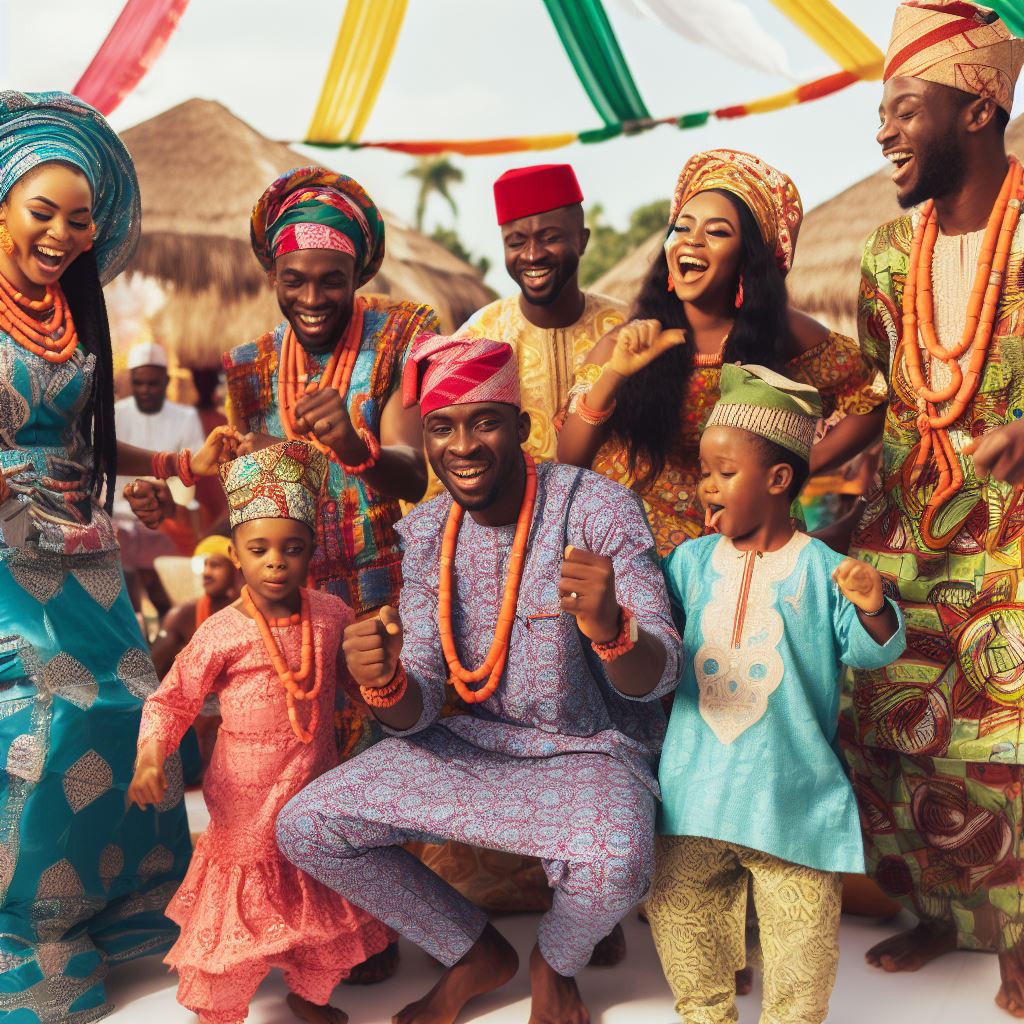
Post-Wedding Traditional Ceremonies
A. Importance of the traditional handover ceremony (Igba Nkwu Nwuru)
- The traditional handover ceremony is a crucial aspect of Nigerian wedding traditions.
- It symbolizes the transfer of the bride from her family to the groom’s family.
- The ceremony typically takes place a few days after the wedding ceremony.
- It is a formal event attended by family members, friends, and well-wishers.
- During the handover ceremony, the bride is formally presented to the groom’s family.
- The groom’s family accepts her and officially recognizes her as their daughter-in-law.
- It signifies the bond between the two families and the unity of the couple.
- The bride’s family also gives gifts to the groom’s family during this ceremony.
- These gifts are a token of appreciation and a symbol of the bride’s dowry.
- The handover ceremony is a joyous occasion filled with music, dance, and feasting.
B. Significance of the bride officially joining the groom’s family
- When the bride officially joins the groom’s family, she becomes a part of their lineage.
- It represents her acceptance and integration into her new family and community.
- She takes on new responsibilities as a wife and is expected to contribute to the family.
- The bride’s official joining marks the beginning of her role as a married woman.
- It symbolizes the transition from girlhood to womanhood in Nigerian culture.
- The bride’s family also receives blessings from the groom’s family during this process.
- The bride’s new status is celebrated, and she is welcomed with open arms.
- It strengthens the bond between the bride’s family and the groom’s family.
- The bride’s presence brings joy, happiness, and new life to her new family.
- The bride’s official joining cements the union between the bride and groom, as well as their families.
C. Traditional practices and celebrations that follow the wedding
- After the wedding and handover ceremonies, various traditional practices and celebrations take place.
- One common practice is the “Igba Nkwu Nwanyi” or “Sitting of the wife,” where the bride is officially welcomed into her new home.
- During this ceremony, the bride sits on a mat while her new family members offer her advice and guidance for her married life.
- They also shower her with gifts, blessings, prayers, and words of wisdom.
- Another traditional practice is the “Igbankwu Nwanyi” or “Woman Wine Carrying Ceremony.”
- This ceremony involves the bride carrying a cup of wine to greet her husband’s relatives.
- It is a way for the bride to demonstrate her humility, respect, and willingness to integrate into her new family.
- The “Umuada” is a group of married women from the bride’s family who come together to support her.
- They organize special ceremonies, dances, and feasts to celebrate the bride’s new chapter in life.
- These post-wedding celebrations serve as a way to further strengthen the bond between the two families.
In a nutshell, the post-wedding traditional ceremonies in Nigeria hold great importance in honoring the institution of marriage.
From the handover ceremony to the bride’s official joining of the groom’s family and the subsequent celebrations, these practices symbolize unity, acceptance, and the start of a new chapter in the bride’s life.
They bring both families together, create lasting bonds, and ensure a joyous transition for the bride into her married life
Read: Nigerian Traditional Wedding Wishes for the Newlyweds
Delve into the Subject: Biblical Love Stories: From Ruth and Boaz to Mary and Joseph
The Role of Traditional Nigerian Ceremonies in Upholding the Institution of Marriage
A. Strengthening the Bond between the Couple and their Families
- Traditional Nigerian ceremonies provide an opportunity for the couple to publicly declare their commitment.
- These ceremonies involve elaborate rituals and customs that actively involve both the bride and groom’s families.
- By actively participating in these ceremonies, the families are sending a message of support and unity.
- The ceremonies foster a sense of belonging and create a strong bond between the couple and their respective families.
- Through these ceremonies, the families create lasting memories and establish a solid foundation for the couple’s future.
- The couple’s families also play a significant role in guiding them and offering advice throughout their married life.
- By actively engaging in these ceremonies, families become invested in the success and well-being of the couple’s marriage.
- The ceremonies help establish a support system within the families, providing a strong network for the couple.
B. Reinforcing Cultural Values and Principles
- Traditional Nigerian ceremonies uphold cultural values such as respect, honor, and obedience.
- These ceremonies highlight the importance of family ties and maintaining strong family relationships.
- Through specific rituals, traditional ceremonies emphasize the significance of unity and togetherness in marriage.
- They promote the preservation of customs and traditions passed down through generations.
- These ceremonies remind the couple and their families of their cultural identity and heritage.
- By following the customs and traditions, the couple and their families honor the values and principles cherished by their ancestors.
- Respect for elders and the adherence to societal roles are also reinforced during these ceremonies.
- Traditional ceremonies act as a medium for imparting cultural wisdom and teachings to the younger generation.
C. Role of Community Involvement in Honoring the Institution of Marriage
- Traditional Nigerian ceremonies are community events where relatives, friends, and neighbors come together.
- Community members play various roles in supporting and honoring the institution of marriage.
- They offer blessings and prayers for the couple’s future happiness and prosperity.
- Their presence signifies the collective celebration and recognition of the couple’s union.
- Community involvement helps strengthen social ties and builds a network of support for the couple.
- Community elders often provide guidance and words of wisdom to the couple during these ceremonies.
- Through their involvement, the community reinforces the importance of commitment and mutual respect in marriage.
- Celebrations and feasts organized by the community symbolize the joyous occasion and act as a gesture of goodwill.
To summarize, traditional Nigerian ceremonies play a vital role in upholding the institution of marriage.
These ceremonies strengthen the bond between the couple and their families, reinforce cultural values and principles, and involve the community in honoring the union.
By actively participating in these ceremonies, the couple and their families create a solid foundation for their married life and establish a support system for their future.
Additionally, the customs and traditions practiced during these ceremonies serve as a reminder of the cultural identity and heritage of the Nigerian people.
Overall, traditional Nigerian ceremonies contribute to the preservation and celebration of marriage in Nigerian society.
Read: Marriage is Honourable: Understanding its Roots in Nigerian Culture
Conclusion
A. Summarizing Key Points
In this section, we explored the rich tapestry of traditional Nigerian marriage ceremonies.
These celebrations, full of vibrant customs, rituals, and symbolism, not only unite couples but also communities.
B. Reinforcing Significance
These ceremonies, deeply rooted in tradition, honor the institution of marriage by emphasizing unity, family, and heritage.
They connect past, present, and future generations through their customs, fostering a sense of belonging.
C. Encouraging Preservation
We urge readers to cherish and preserve these cultural practices.
They are not just rituals but living traditions that bind us to our roots, and in a world of constant change, they serve as pillars of continuity, love, and togetherness.
Embrace your cultural heritage and celebrate the beauty of marriage the Nigerian way.

